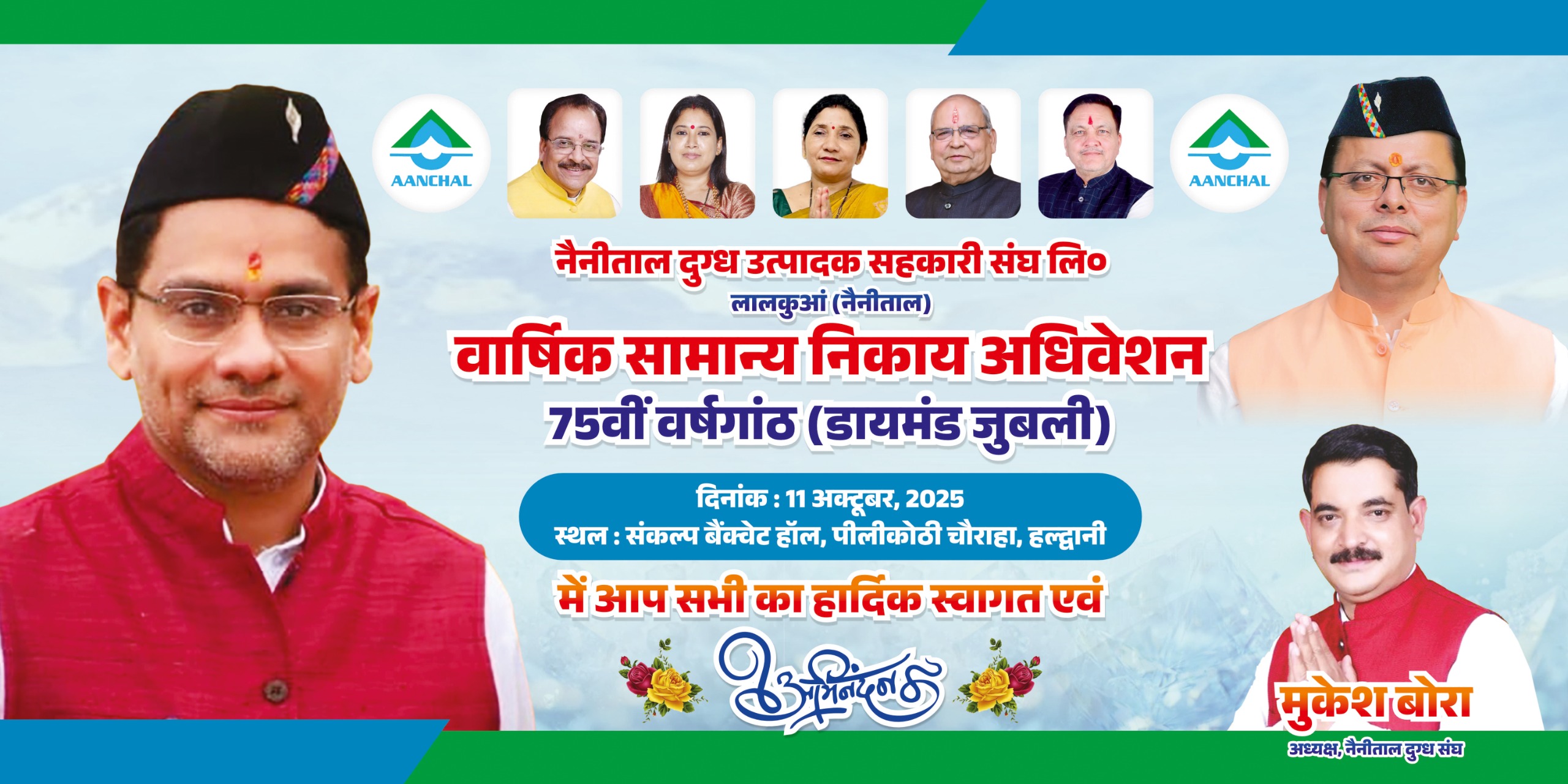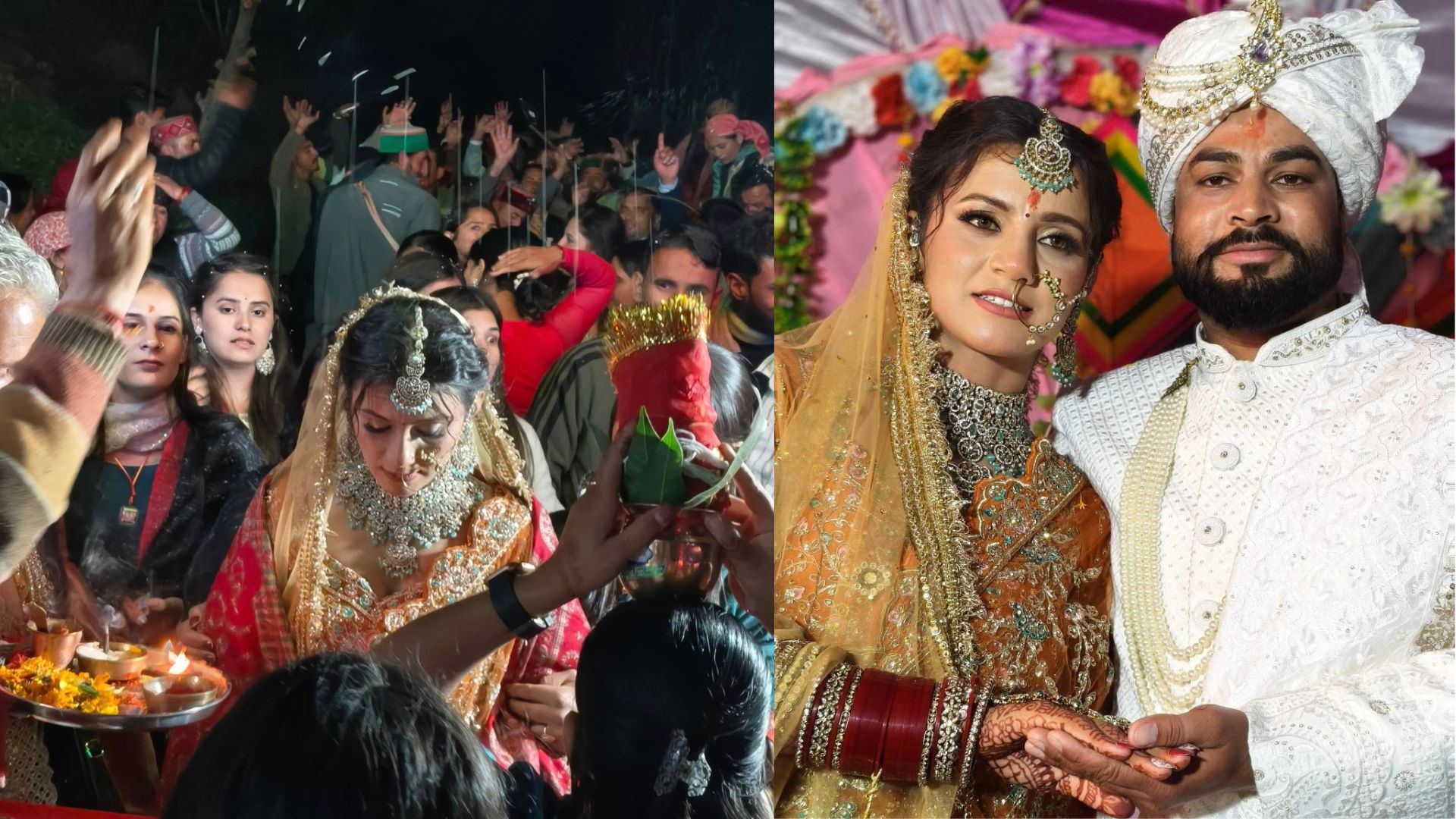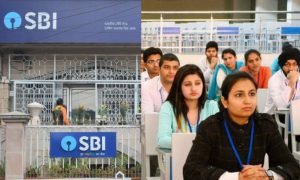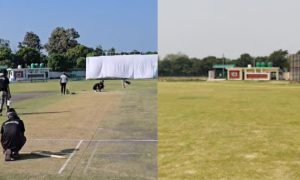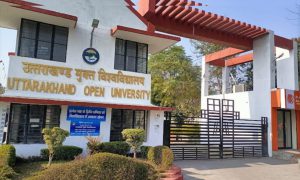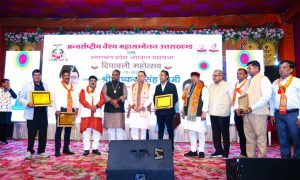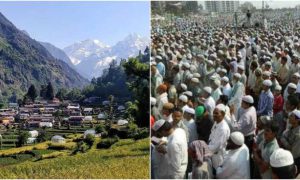Uttarkashi: Uttarakhand, known for its deep-rooted cultural heritage and ancient traditions, once again became the center of attention as a unique wedding ritual came alive in the hills. In a remarkable ceremony held at Arakot’s Kalich village in Mori tehsil of Uttarkashi district, bride Kavita, daughter of Janak Singh from Jakta village, led her own wedding procession (barat) to the groom’s house — reviving the long-lost Jojorāda marriage tradition.
The celebration was filled with traditional music, drums, and folk instruments as Kavita, along with her family and friends, reached the groom Manoj Chauhan’s house. Manoj is the son of former village head Kalyan Singh Chauhan. The groom’s family warmly welcomed the barat following age-old customs.
This ritual, once common in the Jaunsar-Bawar region, had nearly disappeared from the Bangaan area around fifty years ago. With Kavita’s symbolic gesture, this forgotten heritage came alive again, drawing widespread attention from locals and visitors alike.
Reviving a Vanished Custom After Five Decades
The celebration was filled with traditional music, drums, and folk instruments as Kavita, along with her family and friends, reached the groom Manoj Chauhan’s house. Manoj is the son of former village head Kalyan Singh Chauhan. The groom’s family warmly welcomed the barat following age-old customs.
This ritual, once common in the Jaunsar-Bawar region, had nearly disappeared from the Bangaan area around fifty years ago. With Kavita’s symbolic gesture, this forgotten heritage came alive again, drawing widespread attention from locals and visitors alike.
A Wedding Without Dowry or Demands
The wedding stood as a testament to equality and cultural pride. Neither side exchanged dowry nor made any material demands. Kalyan Singh, known for his contribution to agriculture and social progress, emphasized the importance of reviving forgotten traditions. “If we wish to preserve our culture, we must keep these old customs alive,” he said. His progressive approach turned the event into a celebration of both heritage and social reform.
Understanding the ‘Jojorāda’ Marriage Tradition
In Uttarakhand’s cultural lexicon, when the bride takes her wedding procession to the groom’s house, the ceremony is known as a ‘Jojorāda’ marriage — a term that means “a union made by the gods themselves.” The attendees of such a wedding are called ‘Jojoradiye’. The tradition originally emerged to reduce the financial burden on the bride’s family, reflecting the community’s value of equality and collective support.
Experts Speak on Cultural Significance
Historian Prayag Joshi, author of “Jaunsar-Bawar par Rawai se Uttarakhand,” explained that the custom of the bride bringing the procession has gradually faded since the 1970s. “Economic changes following the introduction of reservation policies and social modernization have influenced traditional practices,” he said. However, this wedding signals a revival of identity and cultural remembrance for the new generation.
Keeping Heritage Alive
As the barat returned home the following day, bride Kavita stayed back at her new home, marking the completion of a rare yet deeply symbolic wedding. In a time when modernity often overshadows tradition, this event in Uttarkashi stands as a shining example of how new generations can breathe life into old customs, balancing progress with pride in cultural roots.
